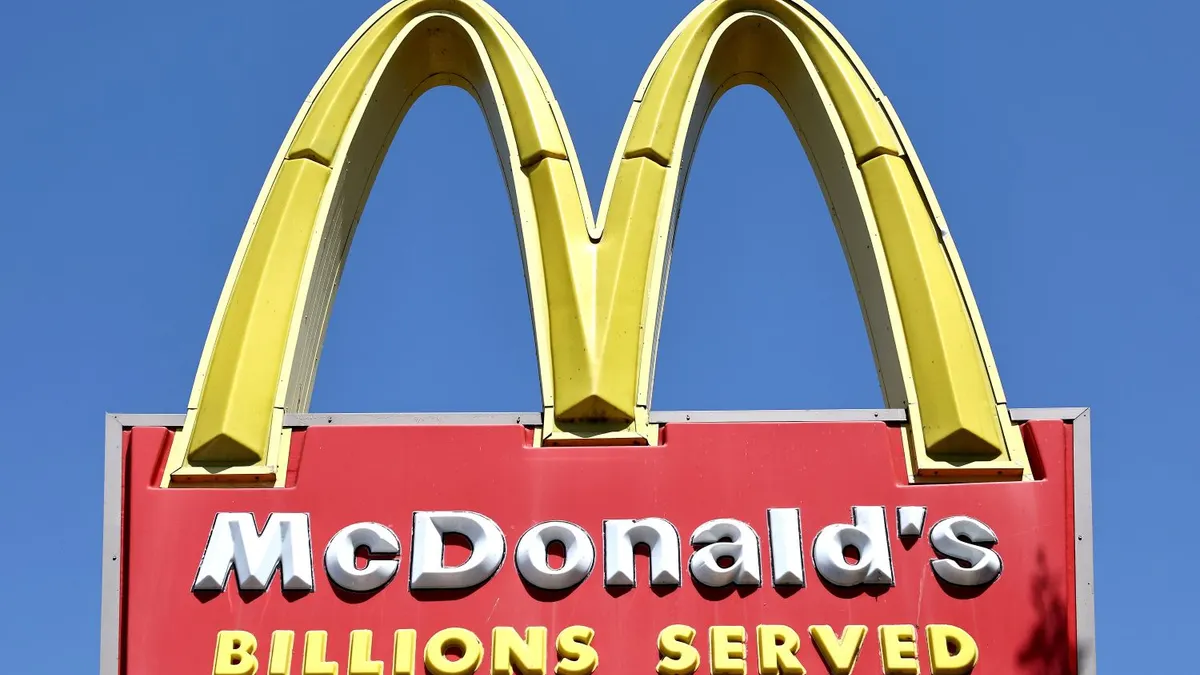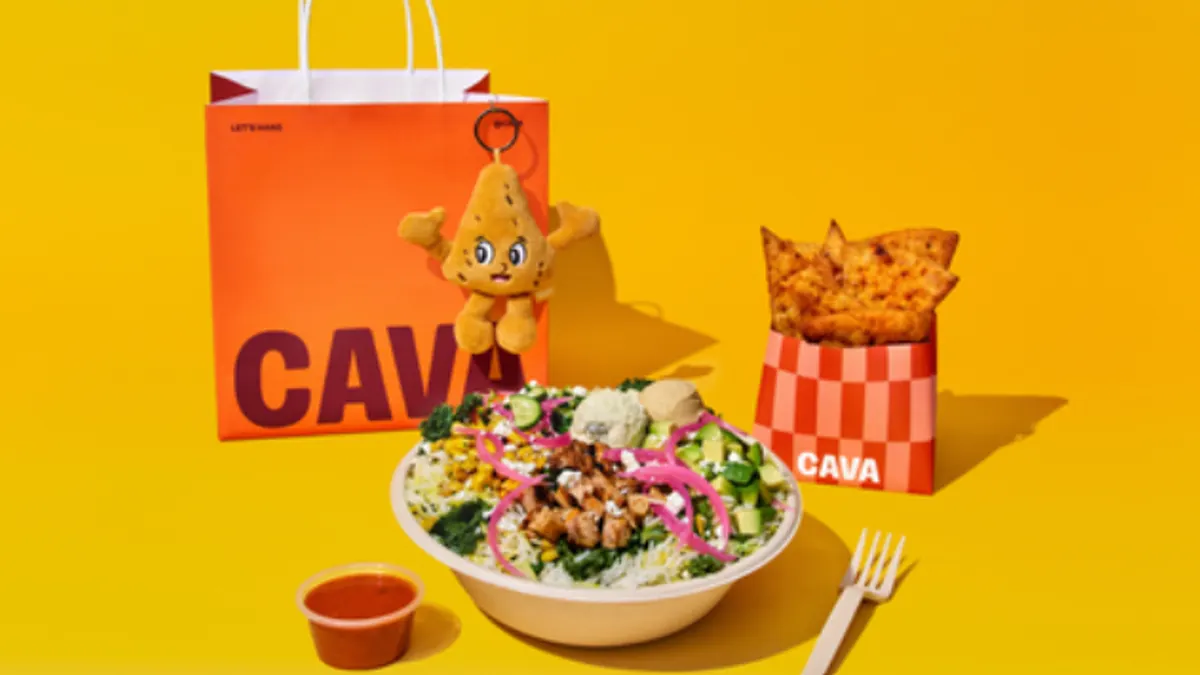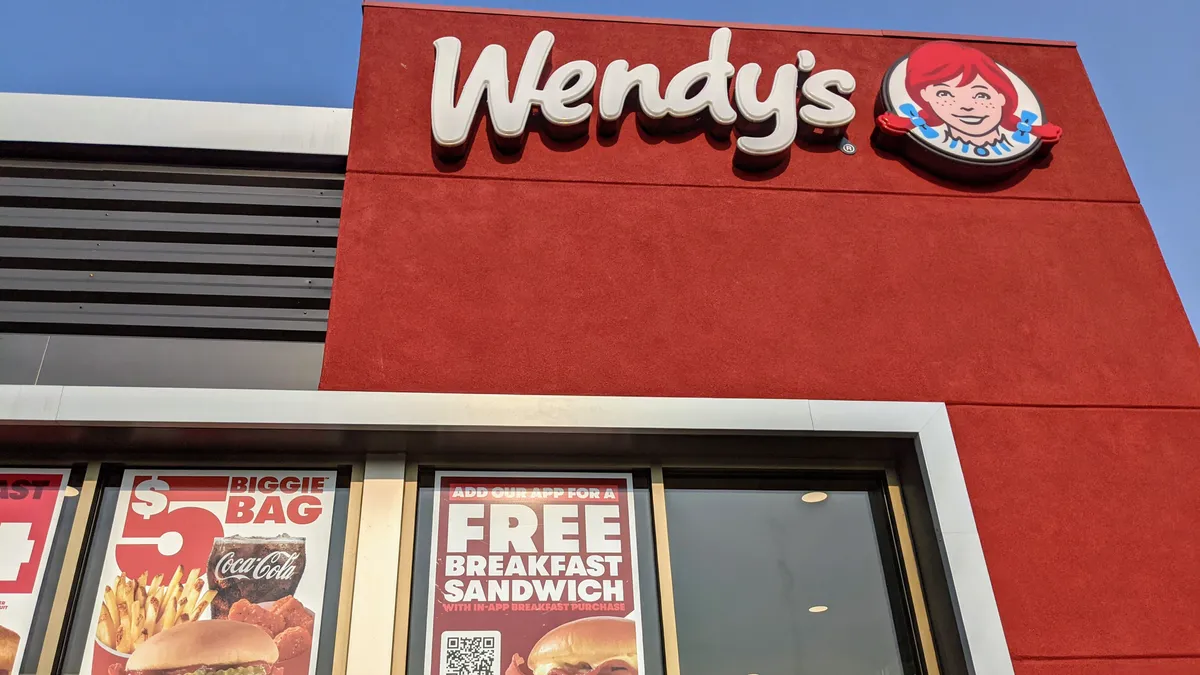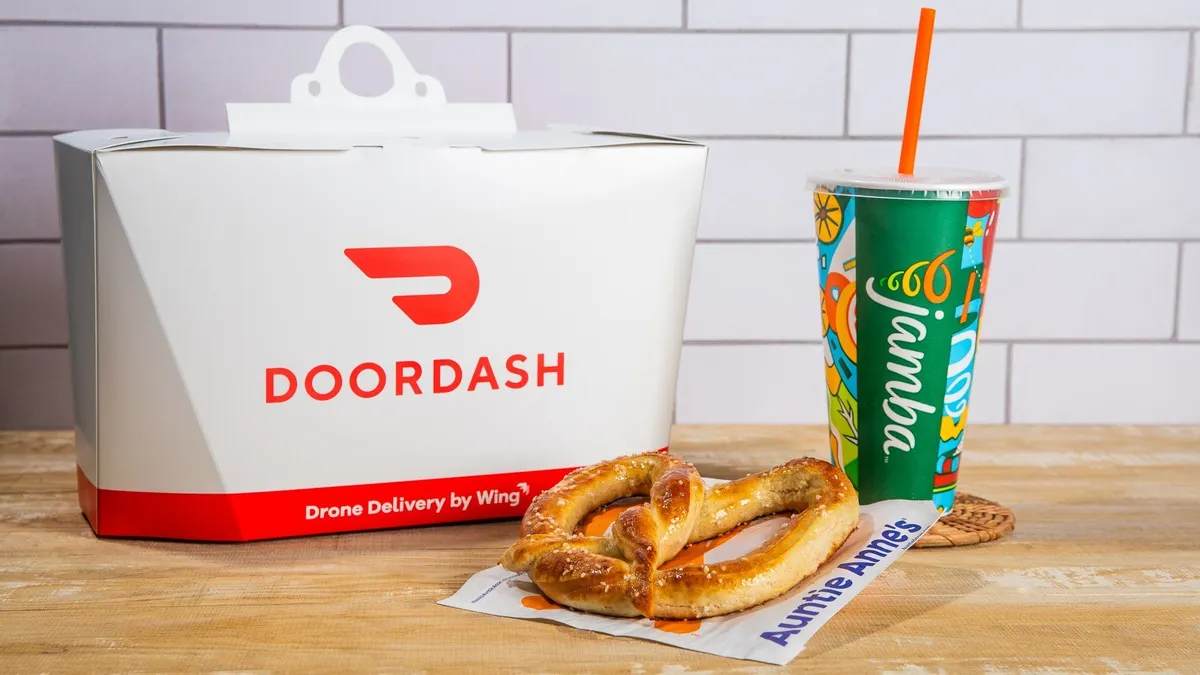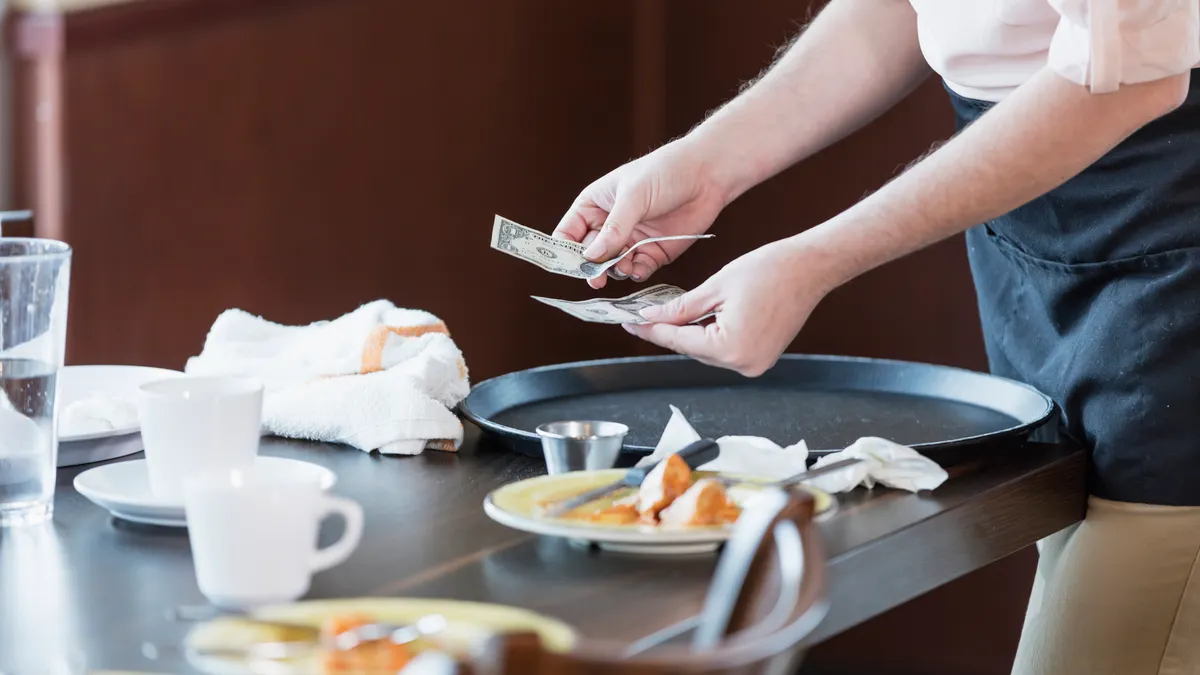McDonald’s new CEO Chris Kempczinski inherits major challenges in the wake of predecessor Steve Easterbrook's ouster.
Between sliding stock prices and negative perceptions of the chain's CEO pay, it won’t be easy to match the success of Easterbrook’s tenure. The former chief focused on increasing tech spending, remodeling stores across the U.S. system and improving drive-thru times, all of which sharpened the QSR giant’s competitive edge.
It’s unlikely that Kempczinski will make any dramatic changes to the restaurant’s current strategy, but the road ahead will be challenging.
"Will [Kempczinski] be as good as the last one that did better than any other fast food company? You have to say probably not," Robert Miller, professor of economics and strategy at Carnegie Mellon, told Restaurant Dive. "[Kempczinski] has a steep climb ahead of him if he wants to prove he is just as good as Easterbrook."
Since Easterbrook started at McDonald's in 2015, shareholder returns have been 150%, far outpacing competitors like Yum and Restaurant Brands International, according to The Wall Street Journal. Easterbrook oversaw all-day breakfast, automated ordering kiosks and Experience of the Future remodels.
Kempczinski started his tenure on Nov. 4 with stock prices falling slightly. He inherits tensions remaining among franchise operators and the shadow of sexual harassment issues at the store level and questions over compensation and minimum wage hanging over the brand — all of which will need to be addressed to protect McDonald's brand.
1. Stock price
Investors, who tend to dislike unexpected changes, were somewhat wary over Easterbrook's sudden departure. This sentiment was reflected with a with a 3% drop in share price the Monday following McDonald's CEO announcements.
"Let's face it, Easterbrook was the CEO [investors] wanted," Miller said. "Now they have someone they didn't want as much. That explains the stock price reaction."
While Piper Jaffray said changes like these can be disruptive, Credit Suisse said any drop in price could be a buying opportunity. BTIG said it wouldn't likely interrupt any turnaround plans in motion, according to a roundup from Market Insider.
The stock price began to bounce back later in the week and is still over 10 points higher than where it was was in the beginning of the year, according to Yahoo Finance data, suggesting that investors were regaining confidence in the new leadership team.
"[There will be] some hit to the price, to the stock, to the brand initially, any time you get bad news out that potentially could happen," Andrew Selepak, University of Florida director of MAMC social media, told Restaurant Dive. "But I don't think there is going to be a long-term impact."
2. Relationship with franchisees
Even though Easterbrook's initiatives helped increase the value of the company, they weighed heavily on franchise operators, who often carried the bulk of the cost. In 2018, the company faced significant headwinds from operators over Experience of the Future remodels, which franchisees claimed were not resulting in significant returns for the millions they put into the redesigns. And menu changes from all-day breakfast to premium sandwiches only added to operators' headaches.
The operators formed the National Owners Association in 2018 to represent the demands of franchisees with the organization pushing back on remodels and asking the company to develop a chicken sandwich that can compete with Chick-fil-A.
Under Easterbrook, the company did adjust to try to better cater to franchisee needs — extending deadlines for remodels, giving operators control over all-day breakfast and ending the exclusive relationship with Uber Eats to give franchise operators more flexibility over delivery.
But past friction with franchisees over tech implementation costs during Kempczinski's time as McDonald's USA president remains an issue, according to Bloomberg. Declining traffic across the U.S. system could also result in increasing tensions if not addressed quickly.
The new leader of McDonald's USA, Joe Erlinger, has been meeting with franchisees. Operator reactions have been mixed. Some think that Kempczinski would be better as a CEO than as the head of McDonald's U.S., while others were somewhat hopeful that Erlinger would do well because he has experience in the company, according to Restaurant Business.
3. Sexual harassment initiatives
Easterbrook's relationship with the employee was consensual, but it could undermine the sexual harassment initiatives and headway it has made with the company culture.
From an ethics standpoint, a CEO can't do the thing that the company is telling employees to stop doing, Selepak said.
The company also had a policy in place that barred the CEO from relationships with employees. The company had to act swiftly to abide by its code of ethics, especially since this type of relationship can create conflicts of interest, Miller said.
"The CEO is not simply the face of the company to the outside world, but also to the inside world," Miller said.
There is also a lot of work still to be done to stop sexual harassment from occurring at McDonald's restaurants, especially since the dozens of allegations that came out in May gained the interest of lawmakers in September. Another lawsuit was filed on Tuesday morning in Michigan, where hundreds of McDonald's employees are planning to strike over sexual harassment allegations and demands to form a labor union, according to the New York Times. An employee claimed that a manager groped her and claimed this assault was part of a "culture of sexual harassment."
Under Easterbrook, the company rolled out an anonymous hotline for employees to call and report harassment. It also implemented a training policy, but it was only for franchise owners, which means employees behind the register still might not have received sexual harassment training, Selepak said. And franchise operators aren't likely to be at each of their restaurants every day overseeing employees and their behaviors, he said.
At the same time, because McDonald's has hundreds of thousands of employees, incidents of this nature are bound to happen, Selepak said.
"You're going to have some bad apples in the bunch engage in all sorts of negative activities, whether it's sexual harassment or just crime or anything else," Selepak said.
4. Employee pay
Another issue coming to light with Easterbrook's departure is his compensation — nearly $40 million with vested stock options included. Considering fast food workers, which average about $9 per hour, have been pushing for $15 per hour minimum wage, this amount of compensation for someone who was fired will likely shed more light on the widening gap between the highest paid and the lowest paid in the industry, Selepak said.
"It isn't too difficult to figure out where that money is not getting spent," Selepak said. "It's not getting spent on employees."
CEOs are paid based on their performance and during Easterbrook's tenure the stock price doubled, which is is why he was paid so much, Miller said. Companies also pay CEOs as much as they do to provide a competitive salary within the industry, Miller said.
Easterbrook's actions also didn't really hurt the brand so it didn't make sense to punish him when the company had been doing so well, he said.
Companies offer severance packages to provide an incentive for a CEO to keep delivering results up until the time they leave, Miller said.
"It doesn't make sense to penalize somebody when the reason they are leaving hasn't much to do with the performance with the company," Miller said.
Easterbrook's actions also haven't stopped people from going to restaurants and buying food.
"I don't believe people who frequent McDonald's care at all about [his relationship with an employee]," Miller said. "I don't really believe that from a marketing point of view McDonald's was hurt that much."
Comparatively, when Papa John's founder John Schnatter made a racist comment during a conference call in 2018, people stopped buying pizzas. This hurt the company's and franchise operators' bottom lines, which are still recovering.
Schnatter was ousted, but without a hefty severance package and has been slowly selling off his remaining stocks. The pizza company also had to completely revamp its marketing strategy, removing any reference of Schnatter from its branding and brought in Shaquille O'Neal as a board member and brand ambassador, kicking off an extensive marketing campaign during the fall.
Despite McDonald's CEO leaving suddenly, analysts don't expect long-term damage to McDonald's brand. Because it's so well known, the company doesn't have to play catchup and doesn't need to be gimmicky to gain customers, Selepak said.
"When you are the hands-down, agreed-upon top dog in the industry you basically maintain your position," Selepak.
Miller said he is a little uncertain about the direction the company will take under Kempczinski, but he doesn't expect the C-suite to soon change course. So much of Easterbrook's ideas are embedded into the overall strategy, that it will likely continue to follow through with them.
"I think their brand has taken a few hits, but because it is such a major player and has been around for so long and it is so iconic, this is more of a bump than anything else," Selepak said.








